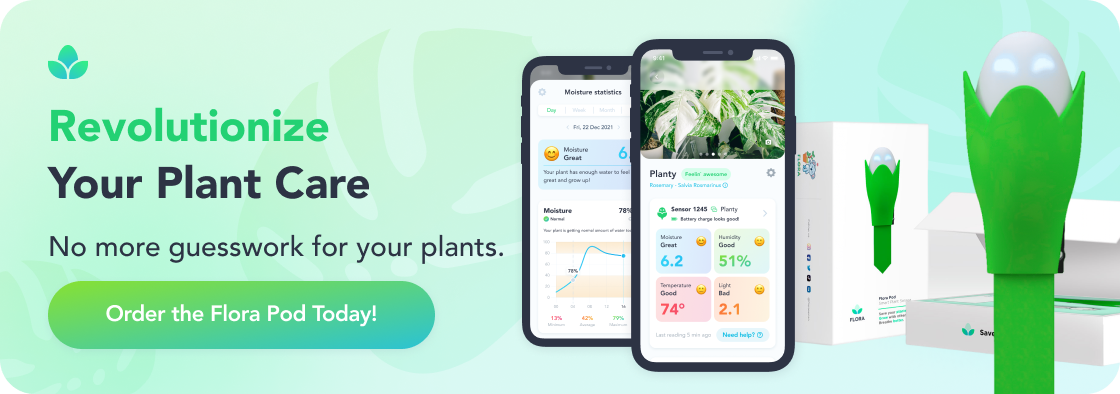25 Types of Anthurium Plants for Vibrant Indoor Spaces

Anthuriums, often referred to as "flamingo flowers" or "laceleaf," are cherished for their vibrant blooms and striking foliage. These tropical plants are perfect for adding a touch of exotic beauty to your indoor spaces. Here, we'll explore 25 captivating types of anthurium plants that can enhance your home with their unique charm.
1. Anthurium Andraeanum

Anthurium andraeanum, commonly known as the flamingo flower or laceleaf, is renowned for its glossy, heart-shaped leaves and vibrant spathes. The spathes, which are modified leaves, come in a variety of colors including red, white, pink, and even variegated shades. These colorful spathes surround the spadix, a spike where the tiny flowers are borne.
Care Requirements
Light: Prefers bright, indirect light. Direct sunlight can scorch the leaves.
Water: Keep the soil consistently moist but not waterlogged. Allow the top inch of soil to dry out between waterings.
Humidity: Thrives in high-humidity environments. Regular misting or a humidifier can help.
Soil: A well-draining potting mix, rich in organic matter, is ideal.
Temperature: Optimal temperatures range from 70-85°F (21-30°C). Avoid temperatures below 50°F (10°C).
2. Anthurium Scherzerianum

Anthurium scherzerianum, also known as the pigtail plant, is characterized by its curly, orange spadix and arrow-shaped leaves. It is one of the most resilient anthurium species, making it an excellent choice for beginners.
Care Requirements
Light: Bright, indirect light is best, but it can tolerate lower light conditions.
Water: Water when the top inch of soil feels dry. Overwatering can lead to root rot.
Humidity: Prefers high humidity but can tolerate average indoor levels.
Soil: Use a well-draining potting mix, ideally with peat and perlite.
Temperature: Keep in a range of 65-80°F (18-27°C).
3. Anthurium Clarinervium

Anthurium clarinervium is prized for its velvety, dark green leaves with striking white veins. This collector’s favorite thrives in environments that mimic its native tropical habitat.
Care Requirements
Light: Requires bright, indirect light.
Water: Water when the top layer of soil is dry, ensuring the soil is moist but not soggy.
Humidity: Needs high humidity (above 60%) to thrive. Use a humidifier if necessary.
Soil: A well-draining mix rich in organic matter.
Temperature: Prefers temperatures between 65-80°F (18-27°C).
4. Anthurium Crystallinum

Anthurium crystallinum is known for its deep green, velvety leaves with prominent silver veins, adding a luxurious touch to any plant collection.
Care Requirements
Light: Bright, indirect light is essential.
Water: Keep the soil consistently moist but avoid waterlogging. Allow the top layer to dry slightly between waterings.
Humidity: High humidity is crucial (above 60%).
Soil: Use a well-draining, chunky mix containing orchid bark, peat, and perlite.
Temperature: Ideal temperatures range from 65-80°F (18-27°C).
5. Anthurium Warocqueanum

Also known as the queen anthurium, this plant features long, lance-shaped leaves that can grow up to 6 feet, making it a dramatic addition to any collection.
Care Requirements
Light: Bright, indirect light is ideal.
Water: Keep the soil evenly moist, but not waterlogged. Let the top inch dry out between waterings.
Humidity: High humidity (around 70-80%) is necessary.
Soil: Well-draining, aerated mix with high organic content.
Temperature: Prefers temperatures between 65-80°F (18-27°C).
6. Anthurium Vittarifolium

This strap-leaf anthurium has long, narrow leaves that dangle gracefully, with variegated varieties featuring dark green leaves and yellow markings.
Care Requirements
Light: Bright, indirect light is best.
Water: Keep soil moist but not waterlogged, allowing the top layer to dry out between waterings.
Humidity: Requires high humidity (above 60%).
Soil: Use a well-draining mix rich in organic material.
Temperature: Ideal temperature range is 65-80°F (18-27°C).
7. Anthurium Forgetii
Anthurium forgetii is unique for its completely ovate leaves without the typical lobes seen in other anthuriums. Its leaves have a velvety texture with prominent white veins.
Care Requirements
Light: Prefers bright, indirect light.
Water: Maintain consistent moisture, allowing the top inch to dry out between waterings.
Humidity: High humidity (above 60%) is essential.
Soil: Well-draining mix with peat and perlite.
Temperature: Optimal range is 65-80°F (18-27°C).
8. Anthurium Magnificum

Anthurium magnificum is noted for its large, heart-shaped leaves with creamy-white veins. New leaves emerge with a burgundy hue before turning dark green.
Care Requirements
Light: Needs bright, indirect light.
Water: Water regularly, ensuring the soil remains moist but not soggy.
Humidity: High humidity (above 60%) is required.
Soil: Use a well-draining, organic-rich mix.
Temperature: Ideal temperatures are 65-80°F (18-27°C).
9. Anthurium Pendulifolium
This species, Anthurium pendulifolium, is known for its pendulous leaves that can reach impressive lengths, making it ideal for vertical spaces.
Care Requirements
Light: Bright, indirect light is preferred.
Water: Keep the soil consistently moist but avoid waterlogging.
Humidity: High humidity (above 60%) is beneficial.
Soil: A well-draining mix with high organic content.
Temperature: Prefers 65-80°F (18-27°C).
10. Anthurium Hookeri
Commonly known as the bird’s nest anthurium, this plant features large, spoon-shaped leaves with tiny black dots and thrives in large containers.
Care Requirements
Light: Bright, indirect light or partial shade.
Water: Water regularly, keeping the soil moist but not soggy.
Humidity: Prefers high humidity (above 60%).
Soil: Use a rich, well-draining potting mix.
Temperature: Ideal range is 65-80°F (18-27°C).
11. Anthurium Superbum
Anthurium superbum is distinguished by its large, velvety leaves with a distinctive texture that adds a touch of boldness to any indoor plant collection. The leaves are broad and feature a unique, almost quilted appearance.
Care Requirements
Light: Prefers low to filtered light environments.
Water: Keep the soil consistently moist but not waterlogged. Allow the top inch to dry out between waterings.
Humidity: Thrives in high humidity conditions.
Soil: A well-draining potting mix is essential.
Temperature: Optimal range is 65-80°F (18-27°C).
12. Anthurium Regale
Anthurium regale is celebrated for its regal, heart-shaped leaves and sophisticated appearance. The leaves are large, dark green, and have prominent white veins, making it a striking addition to any plant collection.
Care Requirements
Light: Requires bright, indirect light.
Water: Keep the soil consistently moist but not waterlogged. Water when the top inch of soil is dry.
Humidity: High humidity (above 60%) is necessary for optimal growth.
Soil: Use a well-draining, peat-based mix.
Temperature: Prefers temperatures between 65-80°F (18-27°C).
13. Anthurium Papillilaminum
Anthurium papillilaminum is known for its papery leaves, which add a touch of elegance to any indoor space. The foliage is distinctive and eye-catching, often drawing attention with its unique texture.
Care Requirements
Light: Bright, indirect light is ideal.
Water: Maintain consistent moisture, allowing the top inch of soil to dry out between waterings.
Humidity: Prefers high humidity environments.
Soil: A well-draining, organic-rich potting mix is best.
Temperature: Optimal range is 65-80°F (18-27°C).
14. Anthurium Luxurians

Anthurium luxurians features deeply lobed leaves and an extravagant appearance. This low-maintenance plant brings a tropical feel to any home, making it a popular choice among plant enthusiasts.
Care Requirements
Light: Thrives in filtered light conditions.
Water: Keep the soil moist but not soggy. Allow the top layer to dry slightly between waterings.
Humidity: High humidity (above 60%) is beneficial.
Soil: Use a well-draining mix rich in organic material.
Temperature: Ideal temperatures are 65-80°F (18-27°C).
15. Anthurium Wendlingeri
Anthurium wendlingeri boasts elongated, lance-shaped leaves that add a sophisticated touch to any indoor garden. This species thrives in well-draining substrate and filtered light.
Care Requirements
Light: Prefers filtered light.
Water: Keep the soil consistently moist, allowing the top layer to dry out slightly between waterings.
Humidity: High humidity (above 60%) is ideal.
Soil: Well-draining, aerated substrate is best.
Temperature: Optimal range is 65-80°F (18-27°C).
16. Anthurium Watermaliense
Also known as the black anthurium, this plant features dark, almost black bracts that provide a stunning contrast to its glossy green leaves.
Care Requirements
Light: Bright, indirect light is preferred.
Water: Keep the soil moist but not waterlogged. Allow the top inch to dry between waterings.
Humidity: Requires high humidity (above 60%).
Soil: Use a well-draining, rich potting mix.
Temperature: Ideal range is 65-80°F (18-27°C).
17. Anthurium Metallicum
Anthurium metallicum stands out with its metallic sheen on the leaves, providing a unique and striking appearance. This anthurium is a favorite among collectors for its distinctive foliage.
Care Requirements
Light: Prefers bright, indirect light.
Water: Maintain consistent moisture, ensuring the soil is moist but not waterlogged.
Humidity: High humidity (above 60%) is essential.
Soil: A well-draining, organic-rich mix is ideal.
Temperature: Optimal range is 65-80°F (18-27°C).
18. Anthurium Veitchii
Known as the king anthurium, this plant features large, deeply ridged leaves that can grow several feet long, making it a majestic addition to any collection.
Care Requirements
Light: Bright, indirect light is ideal.
Water: Keep the soil consistently moist, allowing the top layer to dry out slightly between waterings.
Humidity: Prefers high humidity environments.
Soil: Use a well-draining, organic-rich potting mix.
Temperature: Optimal range is 65-80°F (18-27°C).
19. Anthurium Corrugatum
Anthurium corrugatum features heavily corrugated leaves that add texture and interest to any indoor garden. Its unique leaf structure makes it a standout among other anthurium varieties.
Care Requirements
Light: Bright, indirect light is best.
Water: Maintain consistent moisture, avoiding waterlogged soil.
Humidity: High humidity (above 60%) is beneficial.
Soil: A well-draining, rich potting mix is ideal.
Temperature: Prefers temperatures between 65-80°F (18-27°C).
20. Anthurium Gracile
With its slender, elongated leaves, Anthurium gracile offers a more delicate look compared to other varieties, making it a graceful addition to any indoor space.
Care Requirements
Light: Thrives in bright, indirect light.
Water: Keep the soil moist but not soggy. Allow the top inch to dry out between waterings.
Humidity: High humidity (above 60%) is necessary.
Soil: Use a well-draining, peat-based mix.
Temperature: Optimal range is 65-80°F (18-27°C).
21. Anthurium Radicans
Anthurium radicans is a smaller variety with heart-shaped, textured leaves that are perfect for compact spaces. This variety is particularly appreciated for its manageable size and unique leaf texture.
Care Requirements
Light: Prefers bright, indirect light.
Water: Maintain consistent moisture, allowing the top layer to dry out slightly between waterings.
Humidity: Requires high humidity.
Soil: A well-draining, rich potting mix.
Temperature: Ideal temperatures are 65-80°F (18-27°C).
22. Anthurium Villenaorum
Anthurium villenaorum is noted for its leathery leaves and compact growth habit, making it an excellent choice for tabletops and shelves.
Care Requirements
Light: Bright, indirect light is best.
Water: Keep the soil consistently moist but not waterlogged.
Humidity: Prefers high-humidity environments.
Soil: Use a well-draining, organic-rich mix.
Temperature: Optimal range is 65-80°F (18-27°C).
23. Anthurium Angamarcanum
Anthurium angamarcanum features dark green leaves with a velvety texture and is highly sought after by collectors. Its unique foliage makes it a standout piece in any collection.
Care Requirements
Light: Prefers bright, indirect light.
Water: Maintain consistent moisture, avoiding waterlogged soil.
Humidity: High humidity (above 60%) is essential.
Soil: A well-draining, rich potting mix is ideal.
Temperature: Ideal range is 65-80°F (18-27°C).
24. Anthurium Bonplandii
Anthurium bonplandii is known for its robust growth and large, heart-shaped leaves, making it a standout in any plant collection.
Care Requirements
Light: Thrives in bright, indirect light.
Water: Keep the soil consistently moist but not soggy. Allow the top inch to dry out between waterings.
Humidity: High humidity (above 60%) is beneficial.
Soil: Use a well-draining, organic-rich mix.
Temperature: Optimal range is 65-80°F (18-27°C).
25. Anthurium Metallicum X
A hybrid variety, Anthurium metallicum x combines the best traits of its parent plants, offering unique foliage and vibrant blooms.
Care Requirements
Light: Bright, indirect light is preferred.
Water: Maintain consistent moisture, allowing the soil to dry slightly between waterings.
Humidity: Requires high humidity (above 60%).
Soil: A well-draining, organic-rich potting mix is ideal.
Temperature: Optimal range is 65-80°F (18-27°C).
Care Tips for Anthurium Plants
Light and Temperature
Anthuriums thrive in bright, indirect light and prefer temperatures between 70-85°F. Avoid direct sunlight as it can scorch the leaves.
Humidity and Watering
These plants love high humidity levels, ideally above 50%. Water them regularly, allowing the top inch of soil to dry out between waterings to prevent root rot.
Soil and Fertilizing
A well-draining, peat-based soil mix is ideal for anthuriums. Use a balanced, slow-release fertilizer sparingly, about every 3-4 months.
Common Issues
Watch out for pests like aphids, mealybugs, and spider mites. Regularly inspect your plants and treat any infestations promptly with insecticidal soap or natural predators like ladybugs.
Anthuriums are a diverse and captivating genus that can add vibrant color and unique foliage to your indoor spaces. With proper care, these plants can thrive and bring tropical elegance to your home.
Fern's Leafy Learnings
Light Requirements: Anthuriums thrive in bright, indirect light and should be protected from direct sunlight.
Humidity Needs: High humidity levels (above 50%) are essential for anthuriums to flourish.
Watering Practices: Regular watering is important, but the soil should be allowed to dry out slightly between waterings to avoid root rot.
Soil and Fertilization: A well-draining, peat-based soil mix and minimal fertilization with a balanced, slow-release fertilizer support healthy growth.
Pest and Disease Management: Regularly check for pests and diseases, treating infestations with insecticidal soap or natural predators.
Deepen Your Roots with Flora
At Flora, we not only bring you a vibrant selection of locally sourced, rare, and delightful plants, but we also serve as your continuous guide in your plant parenting voyage, ensuring every leaf in your sanctuary thrives. With our Flora Pod™ technology and a nurturing community of over 250,000 plant lovers, we cultivate a space where every plant parent - novice or expert - can blossom.
We propagate with a commitment to sustainability, connection, and ceaseless growth, fostering a community where each member, and their plants, are cherished and nurtured.
Crave a lush, thriving green space? Adopt a plant from Flora today!
Flora Pod™ is featured on Shark Tank!

5 Signs Your Houseplant Needs Repotting Now
Mar 02, 2026
6 Anthurium Benefits You Didn't Know About
Mar 02, 2026

How to Prune Your Houseplants Before Spring Growth Season
Mar 02, 2026

10 Best Houseplants for Spring Repotting Success
Mar 02, 2026

Can ZZ Plants Survive in Low Light Conditions?
Mar 02, 2026

5 Critical Pre-Spring Pruning Tips for Houseplants
Mar 02, 2026

Can Succulents Survive Winter Outdoors in Your Climate Zone?
Mar 02, 2026

Which Houseplants Are Toxic to Cats and Should You Avoid Them?
Mar 02, 2026




